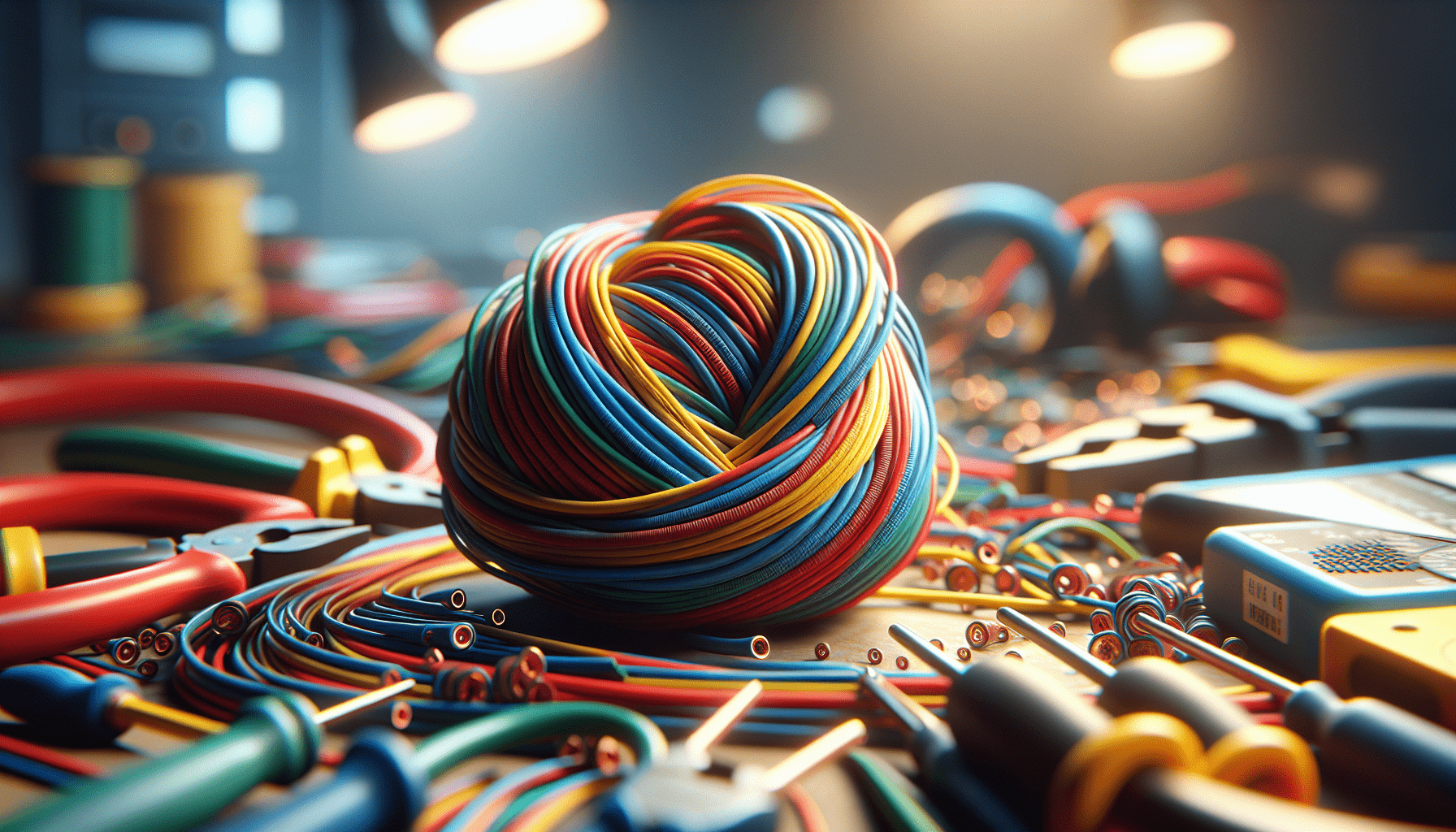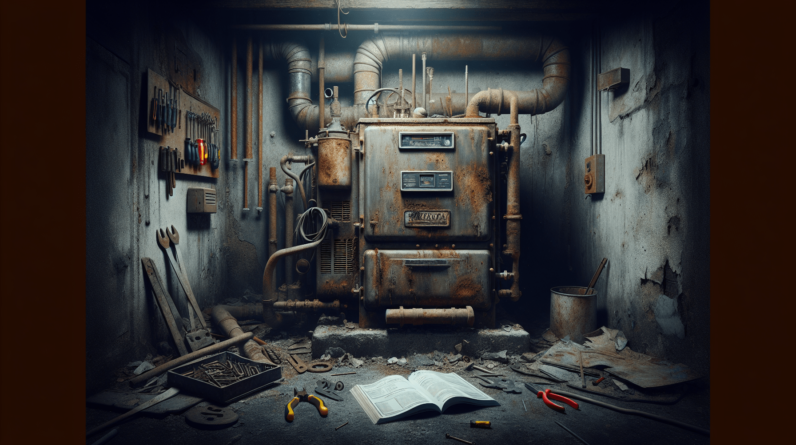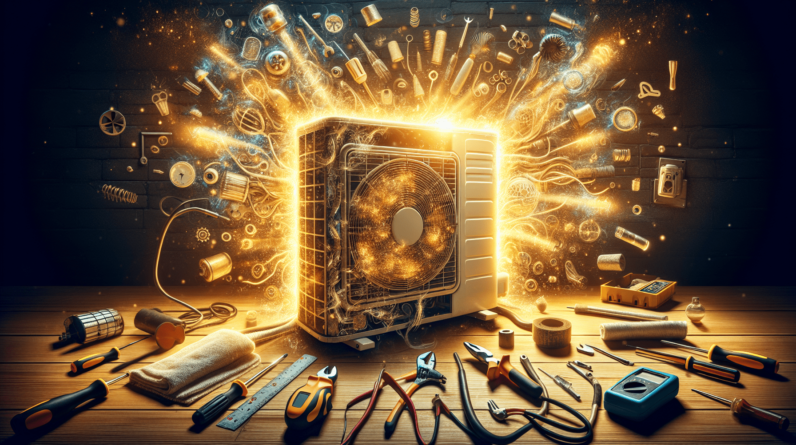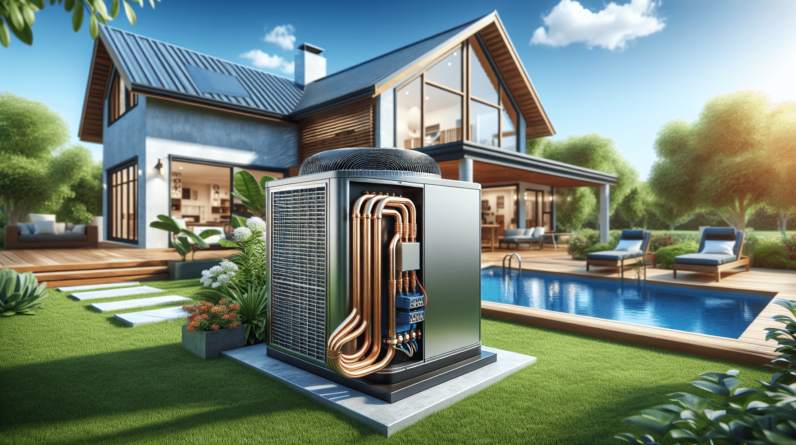

Have you ever wondered what goes on behind the walls when you flip a switch or plug in an appliance? Understanding electrical wiring can not only enhance your knowledge of how your home operates but also help you troubleshoot common issues. Let’s take a closer look at electrical wiring, its components, and why it’s essential for your safety and convenience.

What is Electrical Wiring?
Electrical wiring is a system that allows electricity to flow to different areas of your home or building. It consists of an intricate network of wires, cables, conduits, and devices that deliver power to lights, outlets, and appliances. With a proper understanding of wiring, you can ensure that your electrical system is efficient and safe.
The Importance of Electrical Wiring
Having a well-designed and installed electrical wiring system is crucial for several reasons. First, it ensures that you have a reliable power supply for your daily needs. Second, it safeguards you from potential hazards, such as electrical fires or shocks. Finally, good wiring can enhance the energy efficiency of your home, reducing your utility bills.
Components of Electrical Wiring
Understanding the components of electrical wiring is vital for anyone looking to gain a deeper insight into how their electrical systems work. Let’s break down these components further.
Wires and Cables
At the heart of every electrical system are wires and cables. Wires are made up of a conductive material, typically copper or aluminum, that allows electricity to flow. Cables consist of multiple wires bundled together with insulation, providing protection against electrical interference and environmental considerations.
Types of Wires
-
Copper Wires: Known for excellent conductivity, copper wires are widely used in residential and commercial wiring.
-
Aluminum Wires: Generally lighter and cheaper than copper, aluminum wires are often used in larger projects but require proper installation to ensure safety.
Types of Cables
-
Non-Metallic Sheathed Cable (NM): Commonly used in residential wiring, NM cable consists of multiple insulated wires encased in a plastic sheath.
-
Metallic Sheathed Cable (BX or AC): Designed for more rugged use, this type of cable has a flexible metal sheath and is often used in commercial settings.
Circuit Breakers and Fuses
Circuit breakers and fuses are safety devices that protect your wiring system from overload. They interrupt electricity flow when it exceeds certain limits, preventing potential hazards.
-
Circuit Breakers: These can be reset after tripping, making them a convenient choice for modern electrical systems.
-
Fuses: Once blown, fuses must be replaced. They are becoming less common but are still found in older homes.
Outlets and Switches
Outlets are the points where electricity is delivered for your devices, while switches control the flow of electricity to specific circuits. Understanding the various types can help you better manage your electrical needs.
Types of Outlets
-
Standard Outlets: These are the most common and are used for everyday devices.
-
GFCI Outlets: Ground Fault Circuit Interrupters protect against electrical shocks by cutting off power when moisture is detected.
-
AFCI Outlets: Arc Fault Circuit Interrupters prevent electrical fires by detecting faulty wiring conditions.
Conduits
Conduits are tubes that protect and route electrical wiring. They can be made of metal or plastic and are essential in areas where the wiring might be exposed to damage or environmental conditions.
Electrical Wiring Systems
Your home or building may use different types of wiring systems based on the layout and power requirements. Understanding these can aid you in both home upkeep and renovations.
Residential Wiring
Residential wiring involves supplying power throughout a home. It covers everything from outlets to lighting. Proper installation and adherence to local codes are critical for safety.
Commercial Wiring
Commercial wiring is designed for larger buildings like offices and retail spaces. These systems often require more complex designs to accommodate higher power loads and more rigorous safety standards.
Industrial Wiring
Industrial wiring systems are needed for factories and manufacturing plants. They can include heavy-duty equipment and specialized circuit requirements, often needing professional installation to maintain safety and compliance.
Electrical Codes and Standards
Knowing about electrical codes and standards is essential for anyone involved in electrical installation or repairs. These regulations help maintain safety standards and ensure that all wiring is installed correctly.
National Electrical Code (NEC)
In the United States, the NEC sets out guidelines for safe electrical design, installation, and inspection. Familiarizing yourself with the NEC can help you make informed decisions about electrical projects.
Local Codes
Always remember that local codes may also apply. It’s essential to check local regulations to ensure that your electrical wiring complies with community standards.

Safety Tips for Electrical Wiring
Safety should always be your top priority when dealing with electrical wiring. Here are some helpful tips to ensure you stay safe.
Always Turn Off Power
Before performing any electrical work, make sure to turn off power at the circuit breaker. This simple step can prevent electrical shocks and accidents.

Use Proper Tools
Invest in good-quality tools designed for electrical work. Insulated tools can help protect you from electric shock and simplify your tasks.
Don’t Overload Circuits
Avoid plugging too many devices into a single outlet. Overloading circuits can lead to overheating and increase the risk of fires.
Common Electrical Issues and Troubleshooting
Even with a well-installed wiring system, issues can arise. Here are some common electrical problems and how you can troubleshoot them.
Flickering Lights
If your lights flicker, it could be due to various reasons, including overloaded circuits or loose wiring. Check to see if it’s happening in specific areas and consider calling a professional if the issue persists.
Frequent Breaker Tripping
Constantly tripping circuit breakers typically indicates that the circuit is overloaded. Check if you’re using too many devices on one circuit or if there’s a faulty appliance.
Burning Smell or Sparks
If you detect a burning smell or see sparks coming from outlets, turn off the power immediately and consult a professional. This could indicate serious wiring issues.
When to Call a Professional
While some minor electrical work can be DIY, it’s essential to know when to call for help. Here are situations where professional assistance is necessary.
Major Renovations
If you’re doing significant home renovations that involve adding new wiring, it’s wise to hire a licensed electrician. They ensure that everything complies with safety codes.
Frequent Electrical Issues
If you’re frequently experiencing problems like flickering lights or tripped breakers, a professional can help diagnose and resolve underlying issues.
Complex Installations
Some installations, like home theaters or complex lighting systems, require expertise. Professional electricians can ensure these systems work efficiently and safely.
Learning More About Electrical Wiring
If you’re interested in expanding your knowledge about electrical wiring, there are numerous resources available. Consider enrolling in a local community college course or engaging in DIY workshops. Online tutorials can also help you understand the fundamentals better.
Books and Manuals
A wealth of informational resources, including books and user manuals, provide in-depth knowledge about electrical systems and safety practices.
Websites and Forums
Many websites and online forums offer advice, tips, and shared experiences. Joining these communities can keep you updated on the latest best practices in electrical work.
Conclusion
Understanding electrical wiring opens up a world of knowledge about how your home functions daily. From recognizing essential components to learning how to troubleshoot common issues, you can feel more confident managing your electrical systems. Always prioritize safety, and don’t hesitate to reach out for professional help when needed. Your electricity should be a source of comfort, not concern, and with the right information, you can enjoy it to the fullest.
“Need reliable home services or remodeling? Whether it’s an emergency or a routine project, we’ve got you covered 24/7! Call us anytime at 877-257-5053 and let our experts handle the rest!”






